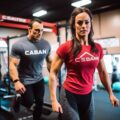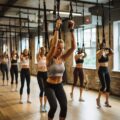When it comes to attaining peak physical fitness and achieving your workout targets, what you eat is as crucial as your exercise regimen. Understanding the symbiotic relationship between nutrition and fitness is key to unlocking your full potential. In this article, we delve into the importance of nutrition in your fitness journey and how to optimize your diet for the best results.
Understanding the Basics of Nutrition
Before you can harness nutrition to fuel your fitness ambitions, you need to understand the basics. Macronutrients (carbohydrates, proteins, and fats) and micronutrients (vitamins and minerals) work together to power your body’s functions. Carbohydrates are your body’s primary energy source, while proteins are essential for muscle repair and growth. Fats are vital for hormone production and provide a secondary energy source. Micronutrients, although needed in smaller amounts, are essential for various physiological functions.
Creating a Balanced Diet for Fitness
A balanced diet tailored to your fitness goals should incorporate a variety of foods to ensure you get a full spectrum of nutrients. Whole grains, lean proteins, healthy fats, and plenty of fruits and vegetables should be the cornerstones of your meals. Additionally, hydration plays a pivotal role in performance and recovery, so be sure to consume adequate fluids before, during, and after your workouts.
Timing Your Nutrition
The timing of your nutrient intake can influence your workout performance and recovery. Eating a meal high in carbohydrates and protein about two to three hours before exercising can give you the energy you need to power through your session. Post-workout, it’s important to refuel with a mix of carbs and protein to aid in muscle recovery and replenish glycogen stores.
Nutrition for Different Fitness Goals
Your nutritional needs can vary significantly depending on your specific fitness objectives. For example, if you’re focusing on building muscle, you’ll want to increase your protein intake to support muscle repair. If endurance is your goal, you’ll need a diet rich in carbohydrates to maintain energy levels over longer periods of activity. Tailoring your nutrition to your goals is essential for effective results.
Common Nutrition Mistakes to Avoid
One common mistake is neglecting nutrition, thinking that exercise alone will achieve fitness goals. Skipping meals or not consuming enough calories can hinder your performance and progress. Another pitfall is relying too heavily on supplements and overlooking the benefits of whole foods. Supplements can be beneficial, but they should complement, not replace, a well-rounded diet.
FAQs About Nutrition and Fitness
How much protein do I need to support muscle growth?
It’s generally recommended that individuals looking to build muscle consume between 1.6 to 2.2 grams of protein per kilogram of body weight. However, individual needs can vary, so it’s best to consult with a nutritionist.
Can I lose fat and gain muscle simultaneously?
While it’s challenging, it is possible to lose fat and build muscle at the same time with a carefully designed diet and exercise plan that includes a caloric deficit, sufficient protein, and resistance training.
Should I avoid fats if I’m trying to get fit?
No, healthy fats are an important part of a balanced diet and are necessary for hormone production and nutrient absorption. Focus on sources like avocados, nuts, seeds, and olive oil.
How important is hydration for fitness?
Hydration is vital for overall health and optimal fitness performance. It aids in temperature regulation, joint lubrication, and transporting nutrients to give your body energy.
Is it necessary to use supplements for fitness?
Supplements can support your fitness goals but are not essential for everyone. A balanced diet is the foundation, and supplements should only be used to address specific nutritional gaps or needs.








